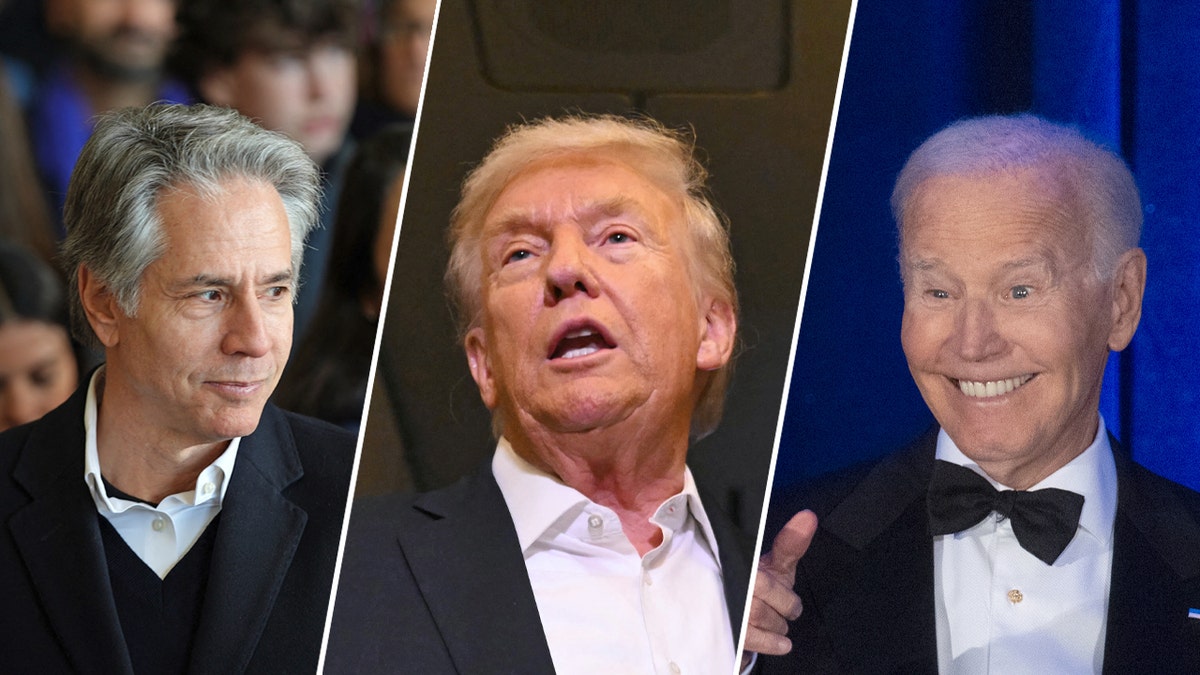CELEBRITIES
Former President Joe Biden and Antony Blinken each took some credit Monday for President Donald Trump’s Israel-Hamas cease-fire deal, arguing it followed groundwork laid by the Biden administration…. details ⤵️

Background: The Cease-Fire / Hostage Exchange Deal
In early October 2025, Israel and Hamas agreed to a cease-fire and hostage exchange deal, under U.S. mediation, involving the release of Israeli hostages (20 living) in return for the release of nearly 2,000 Palestinian prisoners, among other terms.
The arrangement is seen as the initial phase of a broader plan, with further steps (such as full Israeli withdrawal, demilitarization, reconstruction, long-term governance) yet to be fully realized or detailed.
There is a diplomatic summit in Sharm El Sheikh, Egypt (Oct 13, 2025), convened to rally support for implementation of the deal.
Given that the deal’s “credit” is politically meaningful, both former and current actors have moved to shape the narrative of whose diplomacy was pivotal.
—
Biden’s Position: Partial Credit, but He Gave Trump the Finish Line
On Monday, Biden posted on X (formerly Twitter) that he is “deeply grateful and relieved” that the war is nearing its end, and he praised Trump and his team for “getting a renewed ceasefire deal over the finish line.”
But he also asserted that his administration laid groundwork — that his team “worked relentlessly to bring hostages home, get relief to Palestinian civilians, and end the war.”
In other words, Biden is positioning himself as the originator of the framework or vision, while acknowledging Trump’s role in executing the final step.
—
Blinken’s Case: Trump’s Plan Built on Biden’s Blueprint
Antony Blinken, who served as Biden’s Secretary of State, was more explicit: he said Trump’s 20-point peace plan “was based on one developed by the Biden administration.”
Blinken sketched out the narrative: his former administration had negotiated over months with Arab partners, Israel, and the Palestinian Authority, developing a post-conflict plan, which Trump later “adopted and built on.”
Blinken also recalled that the Biden administration had previously secured a cease-fire in January, in which 135 hostages were released, though that deal did not hold permanently.
He emphasized the continuity of key principles: no annexation, no occupation, no forced population transfers, and a credible path to a Palestinian state — which he claimed Trump reaffirmed.
—
Pushback, Criticism & Political Undercurrents
Trump and his allies have ridiculed the notion that Biden or Blinken deserve much credit. Trump called the idea a “joke,” saying Biden “did such a bad job.”
Critics have accused Blinken of “delusional” claims, arguing it is inappropriate to take credit for something achieved under a different administration.
Some commentators point out the natural tendency in politics to reframe foreign policy legacies — especially when a breakthrough occurs close to a transition of power.
Others note that while groundwork is essential in diplomacy, the final push, negotiations, and political pressure often make or break a deal — and those are harder to attribute purely to prior planning.
—
What This Tells Us About U.S. Diplomacy & Credit in Foreign Policy
1. Diplomatic continuity has value
Many foreign policy deals require years of groundwork: trust-building, interlocutors, regional buy-in, negotiating frameworks, middleman states (Qatar, Egypt, etc.).
Even if one administration does not fully conclude a deal, its frameworks or relationships can be reused by successors.
2. The execution phase is politically powerful
Taking a plan that exists only in theory to a signed agreement requires negotiation, leverage, pressure, timing, and sometimes luck.
The one who closes the deal often claims more of the spotlight.
3. Domestic politics shape the narrative
Biden and Blinken have incentives to claim legacy.
Trump has incentives to downplay their role and emphasize his unique agency.
4. Risk of oversimplification
International peacemaking often involves many actors: regional states, third-party mediators, local actors, and nonstate groups.
Drawing a straight line of “c
redit” can neglect contributions of mediators, host governments, and intermediaries.











